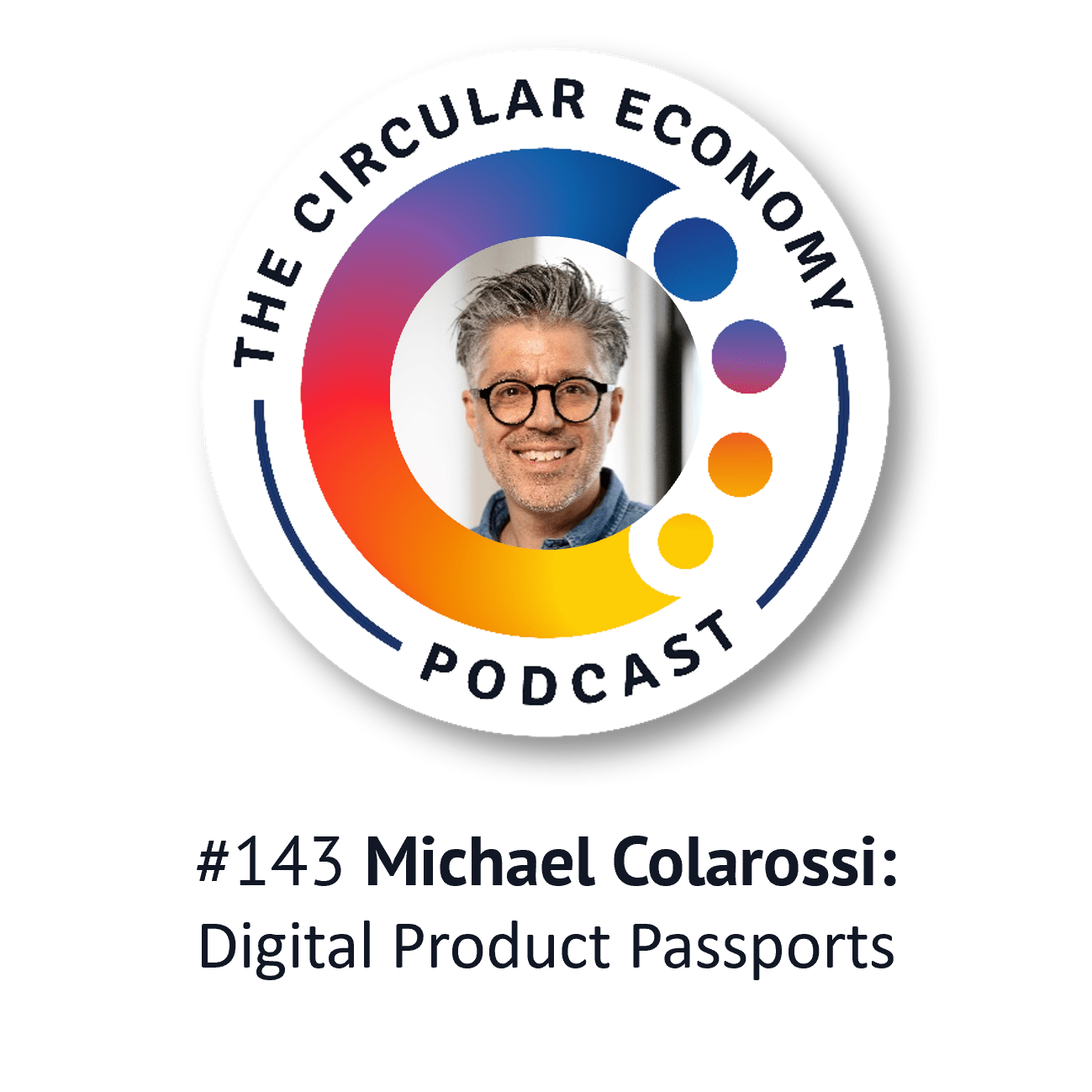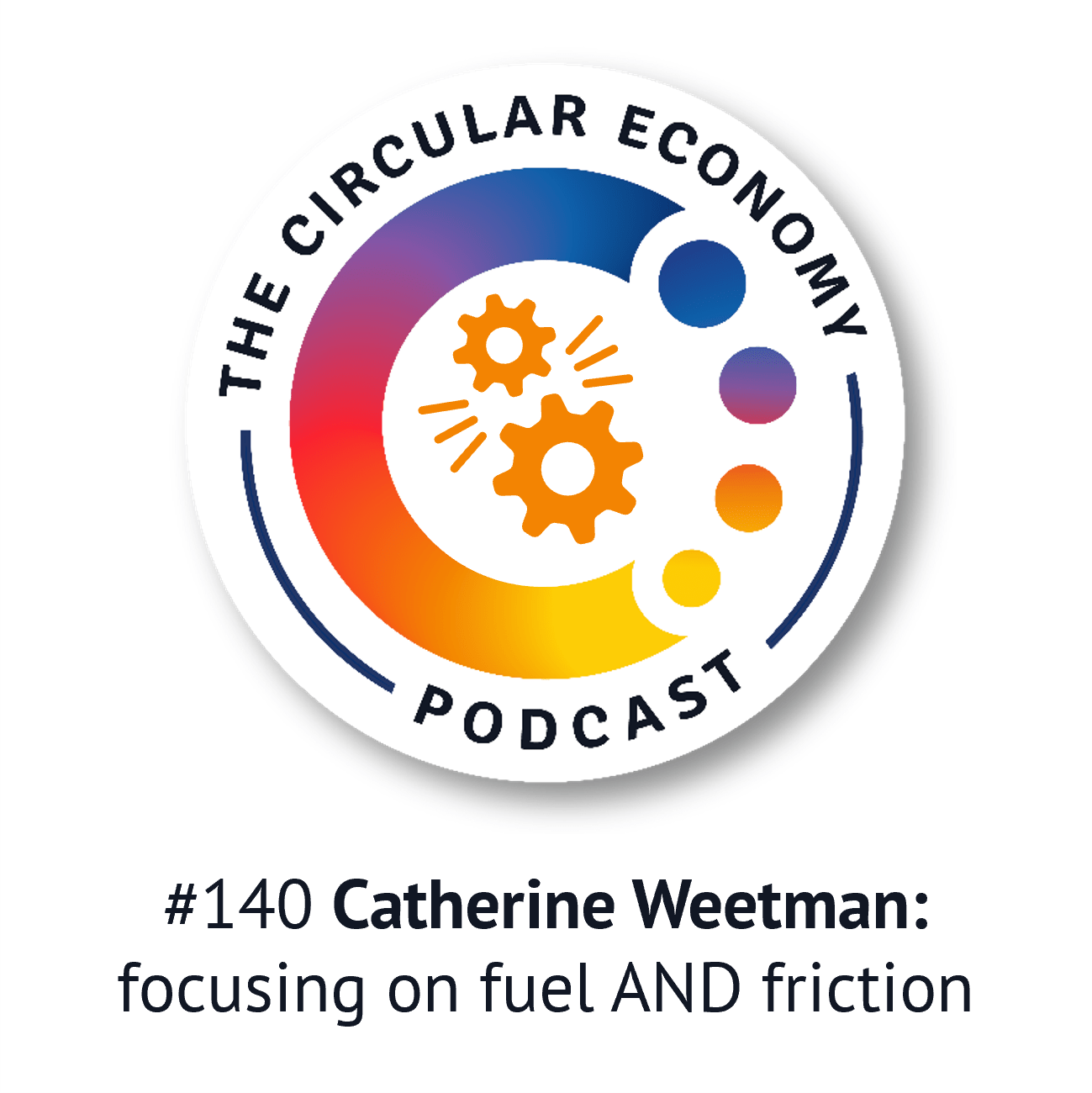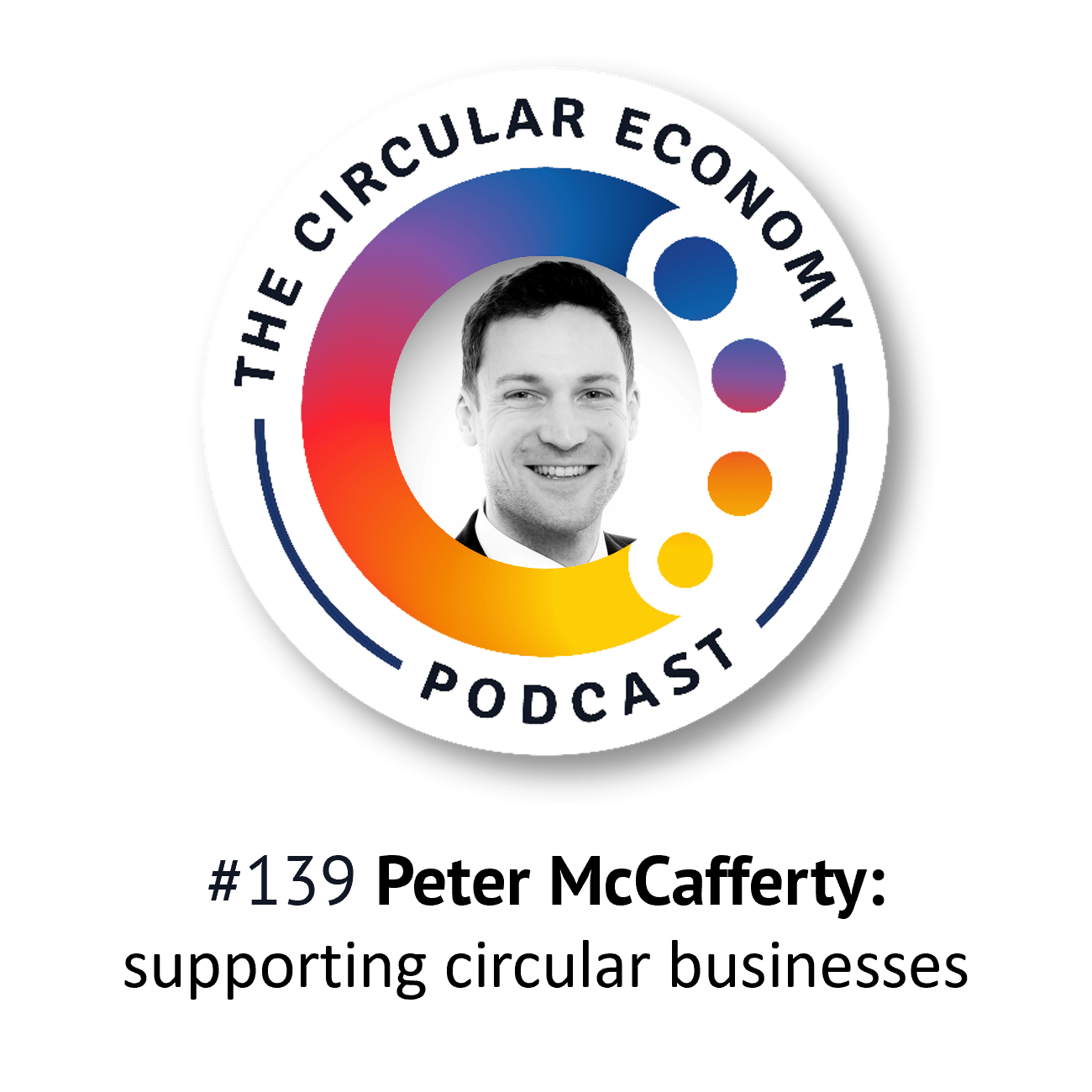Podcast: Play in new window | Download
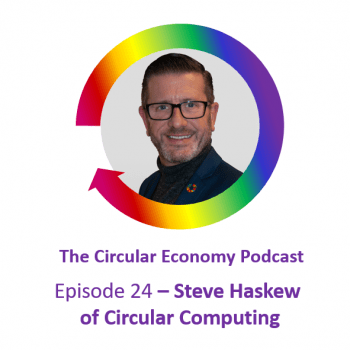 In today’s episode, I’m talking to Steve Haskew of Circular Computing, which remanufactures high-quality top-brand laptops, including Dell, HP and Lenovo. They are certified carbon-neutral, with performance tested as providing 97 per cent compared to a new model. Remanufacturing is one of the circular economy strategies that helps us keep products, components and materials ‘in the system. It means we can have high-quality, reliable products and equipment with pretty much the same performance as a new version – and costing significantly less – for the customer, society and our environment.
In today’s episode, I’m talking to Steve Haskew of Circular Computing, which remanufactures high-quality top-brand laptops, including Dell, HP and Lenovo. They are certified carbon-neutral, with performance tested as providing 97 per cent compared to a new model. Remanufacturing is one of the circular economy strategies that helps us keep products, components and materials ‘in the system. It means we can have high-quality, reliable products and equipment with pretty much the same performance as a new version – and costing significantly less – for the customer, society and our environment.
Circular Computing has been remanufacturing since the 1990s, and provides laptops to education, public sector and even direct to consumers. Every machine goes through a 100+ point-check, any worn components are replaced and selected components are upgraded to give them a performance boost.
The company now has over 250 staff and remanufacturing capacity of up to 10,000 units each month. Circular Computing calculates that each remanufactured laptop saves 380 kg of CO2, 190k litres of water, and 1200kg of mining materials.
We talk about the customer value proposition, and how remanufacturing is different from second-use products.
Podcast host Catherine Weetman is a circular economy business advisor, workshop facilitator, speaker and writer. Her award-winning book, includes lots of practical examples and tips on getting started. Catherine founded Rethink Global in 2013, to help businesses use circular, sustainable approaches to build a better business (and a better world).
Stay in touch for free insights and updates…
Read on for a summary of the podcast and links to the people, organisations and other resources we mention.
You can subscribe to the podcast series on iTunes, Google Podcasts, PlayerFM, Spotify, TuneIn, or search for “circular economy” in your favourite podcast app. Stay in touch to get free insights and updates, direct to your inbox…
Links we mention in the episode:
- Blog: Worried about supply-chain disruption? Why circular economy approaches are more resilient
- Blog: The best circular strategy is NOT recycling
- Circular Computing https://circularcomputing.com
- Circular Computing on LinkedIn https://www.linkedin.com/company/circular-computing/ Facebook https://www.facebook.com/CircularIT/ Twitter https://twitter.com/CircularIT YouTube https://www.youtube.com/channel/UCTMeej5BHhcgxeyPXar_Vww
- Steve Haskew on LinkedIn https://www.linkedin.com/in/stephen-haskew-4732731a/
About Steve Haskew
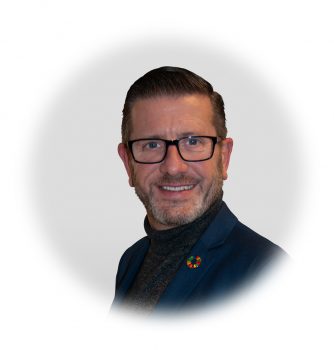 Steve specialises in a Circular Economy business model, specifically within the IT industry – a “Super Looper”.
Steve specialises in a Circular Economy business model, specifically within the IT industry – a “Super Looper”.
He has a deep understanding of the UN SDG’s, of resource preservation challenges, ethics in the supply chain, a wide knowledge of positive change required in eWaste, and reverse logistics – and the interdependent relationships these have, with an acceleration to a Carbon Net Zero future.
He is a regular keynote at Governmental level, the UN and EU helping to build the bridges to the Circular Economy and sustainability in the IT industry as the transition to a Circular Economy takes hold.
What Steve says about Circular ComputingTM
“Creating positive net sustainability impacts within the Circular Economy and ICT Re-Use – delivering on the three pillars. Ultimately, providing carbon zero products, contributing to a carbon zero future. Committed to and delivering on the United Nations SDG’s, particularly SDG 12 – Sustainable Production and Procurement – and SDG 13 Climate Change. Part of our profits are invested into reforestation, renewable energy and social programmes – providing an end to end solution to the client.
It sounds easy but is not easily achieved, and has taken a generation of innovation, of learning/unlearning/relearning and we are now able to deliver a remanufactured laptop solution in the quantities required to feed the public sector (who represent 35 per cent of all IT spend).
There are 160 million laptops made annually – and this is in a steady state. There are more than 300,000 being disposed of daily in the North American and European markets.
The challenge then is to have a reverse logistics and remanufacturing process that provides an end to end service to the client and provides a solution that the client can easily understand and trust. Our business has achieved this. At scale, for huge environmental impacts. The challenge is the promotion to the client and creating the brand – so three years in Circular Computing is seeing lift off, and 2020 has begun with vigour as these important matters are now centre-stage.
Significant movements in the cost of minerals (take palladium this year, up 80 per cent) demonstrates clearly that the supply and demand imbalances based on a linear economy model, are not sustainable. Prices are increasing, and product is running short – today there is a global 4x of Internet of Things (IoT) per head with a prospective Earth Over Run of 2x by 2030, yet the tech/EV and IoT boom means that the forecast is 15x devices per head and a 4x Earth supply.
There is only 100 per cent of anything. So only when you adopt a Circular approach will you be able to defend against this. And sadly if there is not a shift then the wealthy who can afford will get, leaving a widening digital and global inequality divide for those that cannot.”
What we talk about
[03:10] We start with Steve reminding us about the history of the PC, with technology development leading to regular improvements in processing speed and data storage capacity. This created a natural upgrade path, meaning manufacturers had a self-perpetuating pipeline for their future sales.
Now, though, cloud computing means we no longer need lots of data storage, and ‘software as a service’ is delivered through the internet. That, in turn, means processing power on your tablet or PC is less important.
[07:00] Steve explains how Circular Computing has geared up for remanufacturing, and the difference between quality-assured remanufacturing and the informal second-user markets.
The IT procurement process
[13:55] Then we hear how remanufactured PCs fit into the procurement processes of a typical customer, which might replace its IT equipment on a rolling cycle.
[19:00] Each customer will have several different stakeholders involved in IT procurement decisions, each with their own priorities. Steve explains how these play out in practice.
Remanufacturing supply chains
[23:00] Steve explains the major investments required to set up a remanufacturing supply chain. As well as the factory, with specialist processes including 3D printing, cleaning and so on, they have to procure pre-used products ‘ahead of the curve’.
Triple bottom line and going beyond ‘responsibility’
[25:06] We discuss the buying behaviour of Circular Computing’s customers, and the wide range of benefits available to those choosing remanufactured IT.
[26:45] We talk about ‘semi-circular’ approaches. These are better than ‘linear’ – take, make, waste – and can be a significant step towards closing the loop. However, Steve believes companies need to go further than just being ‘responsible’, and deciding that your duty of care stops once you hand over your end-of-use products to a recycling centre.
[30:11] Steve explains how Circular Computing thinks about customer value from the perspective of three ‘strands of sustainability’.
Markets and geographies
[34:45] Steve explains that remanufactured laptops can probably meet 80 per cent of customer needs. Most users have fairly similar requirements. However, there will always be some specialized specifications that probably mean buying new kit.
Another tip for startups
[35:57] Finding a match between your ‘DNA’ and that of your potential customers is critical. What does Steve mean by this? It’s about finding people who share your values and purpose, which then makes it easier to build a relationship and create a win-win solution.
Want to find out more about the circular economy?
If you’d like to learn more about the circular economy and how it could help your business, why not listen to Episode 1, or read our guide: What is the Circular Economy?
To go deeper, you could buy Catherine’s book, A Circular Economy Handbook for Business and Supply Chains This comprehensive guide uses a bottom-up, practical approach. It includes lots of real examples from around the world, to help you really ‘get’ the circular economy. Even better, you’ll be inspired with ideas to make your own business more competitive, resilient and sustainable.
Please let us know what you think of the podcast – and we’d love it if you could leave us a review on iTunes, or wherever you find your podcasts. Or send us a Tweet: @Rethink _Global.
Podcast music
Thanks to Belinda O’Hooley and Heidi Tidow, otherwise known as the brilliant, inventive and generous folk duo, O’Hooley & Tidow for allowing me to use the instrumentals from the live version of Summat’s Brewin’ as music for the podcast. You can find the whole track (inspired by the Copper Family song “Oh Good Ale”) on their album, also called Summat’s Brewin’. Or, follow them on Twitter.
